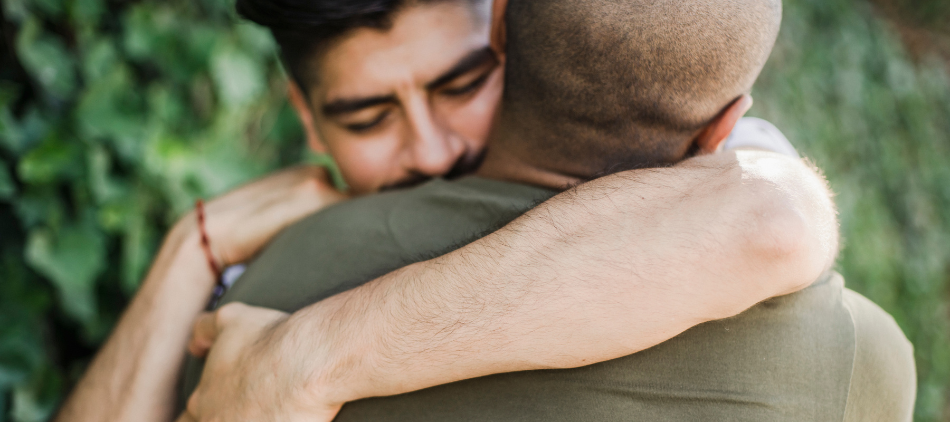
Suicide & Overdose Loss
The death of a loved one is one of the most difficult times in a person’s life. When that death occurs in tragic circumstances, such as an overdose, suicide or accidental death, however, the impact of the loss is felt even more profoundly in many ways.
You Are Not Alone
Unfortunately, each year, thousands of people from all walks of life die tragically. You are therefore not alone in feeling some of the most profound and powerful grief you’ll ever experience.
A wide range of emotions is expected and normal. You may experience very strong feelings of shock, numbness, anger, guilt or helplessness. It may also be difficult to talk about the death. As a result, you may feel compelled to quickly move on and try to forget about it. However, as difficult as it may be to do so, having open and honest conversations about your loss is a critical step in beginning to grieve the death of your loved one.
Sharing the News With Others
Sometimes people wonder how others will react when they learn about how their loved one died. It’s true that other family and friends may share your feeling of surprise and even shock regarding the death, especially if they were unaware of ongoing drug abuse, depression or other circumstances that may have contributed to the death. However, in all likelihood, your family and friends want to be there for you in your time of need. They want to console you and mourn with you. They also want to reflect on and share the positive memories of your loved one.
Include others in your grieving process whenever you can, whether you invite them to attend a funeral or memorial service or call on them from time to time to talk about positive memories of your loved one – or even to reflect on your loss.
The most important thing to remember is that the circumstances under which your loved one died do not define who he or she was as a person.
And every life is worth remembering.
Celebrate the Life of Your Loved One
There are a number of ways you can celebrate the life of your loved one. Whatever you choose to do, make sure it fulfills your needs as you begin to grieve, as well as reflects the life of your loved one. We often think of funerals as being for the deceased, but they are, in fact, for the living – to allow special time for family and friends to support one another and share their grief. This type of gathering is important regardless of how an individual dies but is perhaps even more critical when a death is tragic.
Your funeral director can help you plan a tribute that beautifully reflects the life of your loved one. The service can be held at a funeral home, church or a place with special meaning, such as a restaurant or park, or a favorite venue, such as a ballpark or museum.
Have a Viewing and Visitation
A sudden and tragic death can be hard to accept, and sometimes it’s difficult to believe that the individual has really died. Viewing the body of the deceased can help mourners accept the death, say goodbye and begin the grieving process. You may choose to have a private viewing with just close family or a public viewing at the service. While there are some circumstances in which a viewing is not possible, often it is. In some cases, even being able to see and hold the hand of your loved one can be beneficial. Your funeral director can discuss your options with you.
Make the Service Meaningful
Think about the things that made your loved one special and the activities he or she most enjoyed. By incorporating your loved one’s experiences, talents or hobbies into the tribute, you can share the person you loved with everyone in attendance. Whether you have mementos or photos or know of a poem, song or quote that was particularly meaningful to your loved one, your funeral director can help you determine how to incorporate those items to create a service that is reflective of the person you knew and loved.
Involve Loved Ones
Inviting family members, including children and youth, and other loved ones to participate in the service will make it even more meaningful and help those who participate take an active role in saying goodbye. Take time as a family to create picture boards that illustrate your loved one’s life. Ask family members and friends to share a poem, reading or special memory during the funeral, memorial service or tribute. Create a memory book and ask guests to share their favorite memories.
Honor Your Loved One
It’s possible that the most powerful way you can honor your loved one’s life is by making a difference in the lives of others. Consider requesting memorial gifts to a meaningful charity or organization related to the circumstances under which your loved one died. For example, if the death was due to a drug overdose, request donations to an organization that works with at-risk individuals. Gifts to a suicide prevention organization may help prevent similar deaths. Or request memorial donations to your loved one’s favorite charity, lodge, community organization or club.
988 Suicide and Crisis Lifeline
If you or someone you know is struggling or in crisis, help is available. Call or text 988 or chat 988lifeline.org. Veterans, press 1 when calling.